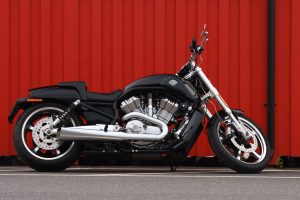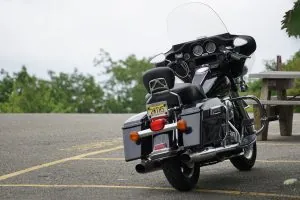Contents
Harley Oil Filters: Exploring K&N, Lifespan, and Top Brands
When it comes to maintaining your Harley Davidson motorcycle’s engine health, the oil filter is one of the most crucial components.
A reliable oil filter helps keep the engine clean by trapping contaminants and ensuring a steady flow of clean oil.
In this article, we’ll delve into the world of Harley motorcycle oil filters, focusing on the renowned K&N oil filter, the manufacturers behind Harley Davidson’s oil filters, and other top brands in the market. Let’s ride into the details!
K&N Harley Davidson Oil Filter – Performance at Its Best
K&N is a well-known name in the automotive industry, revered for producing top-notch filters.
Their Harley Davidson oil filter is no exception.
Designed to meet the rigorous demands of Harley Davidson motorcycles, this filter offers exceptional filtration efficiency and superior performance.
Key Features of K and N Harley Davidson Oil Filter:
High Filtration Efficiency: The K&N oil filter employs advanced filtration technology, effectively capturing harmful contaminants such as dirt, debris, and metal particles, providing optimal engine protection.
Durability: Constructed with high-quality materials, K&N oil filters are built to last, ensuring extended service life and enduring performance on the road.
Anti-Drain Back Valve: The integrated anti-drain back valve prevents oil from draining out of the filter, enabling quicker start-ups and better lubrication during cold starts.
Lifespan of Harley Davidson Oil Filters
The lifespan of an oil filter is a vital consideration for motorcycle owners.
Generally, Harley Davidson oil filters are designed to function optimally for a recommended duration or mileage.
However, it is essential to consider your riding conditions and maintenance schedule.
Routine oil changes are crucial for maintaining the health of your motorcycle’s engine, and changing the oil filter at the same time is highly recommended.
For most Harley Davidson motorcycles, replacing the oil filter every 5,000 to 7,500 miles (or 6 to 12 months) is standard practice.
Top Brands Manufacturing Harley Davidson Oil Filters
Who makes Harley Davidson oil filters?
Harley Davidson oil filters are manufactured by various companies, including Harley-Davidson itself. Additionally, several aftermarket brands produce oil filters specifically designed to fit Harley Davidson motorcycles. Some of the popular aftermarket brands that make oil filters for Harley Davidson bikes include Amsoil, K&N, Hiflofiltro, Fram, Mobil 1, Vance & Hines, S&S Cycle, Drag Specialties, and Twin Power.
These brands offer a range of options to choose from, providing Harley riders with different filtration technologies and performance features. It’s essential to select a reputable brand that meets the necessary specifications and is compatible with your specific Harley Davidson model. Always refer to your motorcycle’s owner’s manual or consult with experts to ensure you use the right oil filter for your bike.
Selecting the Ideal Oil Filter for Your Harley Davidson Motorcycle
Choosing the right oil filter for your Harley Davidson motorcycle is vital to ensure peak engine performance and longevity.
Here are some essential factors to consider:
Compatibility: Ensure the oil filter is specifically designed for your Harley Davidson motorcycle’s model and year.
Filtration Efficiency: Look for oil filters with high filtration efficiency ratings to protect your engine from contaminants effectively.
Build Quality: Opt for filters constructed with durable materials to withstand the demanding conditions of motorcycle riding.
Conclusion
Harley oil filters play a crucial role in maintaining the health and performance of your motorcycle’s engine.
Among the top brands available, K&N stands out with its exceptional performance and filtration capabilities.
Remember to adhere to recommended maintenance schedules and select the right oil filter for your Harley Davidson to ensure years of smooth and enjoyable riding experiences.
Stay informed, stay protected, and keep your Harley roaring down the open road!
FAQs
Q: Are Harley oil filters all the same? A: No, Harley oil filters are not all the same. While they may share certain standard features, there are differences among various oil filters made by different manufacturers. Original Equipment Manufacturer (OEM) filters from Harley-Davidson will have specific specifications tailored to their motorcycles. Aftermarket filters, such as those from K&N, Amsoil, or Hiflofiltro, may offer different filtration technologies, capacities, and compatibility with various Harley Davidson models. It's essential to choose an oil filter that matches your bike's requirements and meets the necessary quality standards. Q: Are K&N oil filters good for Harley? A: Yes, K&N oil filters are generally considered good options for Harley Davidson motorcycles. K&N is a reputable brand known for its high-flow air filters and oil filters. Their oil filters are designed with advanced filtration media, providing excellent particle retention and allowing for higher oil flow rates. Many Harley riders have reported positive experiences with K&N oil filters, citing improved engine performance and reliability. However, like any aftermarket product, it's essential to ensure that the K&N oil filter you choose is compatible with your specific Harley Davidson model. Q: How often should you change oil and filter on a Harley-Davidson? A: The recommended oil change interval for Harley-Davidson motorcycles varies depending on the model and year. As a general guideline, most Harley owners perform oil changes every 3,000 to 5,000 miles or once a year, whichever comes first. Along with changing the oil, it's best to replace the oil filter at the same time. Regular oil and filter changes help maintain engine performance, reduce wear, and prolong the life of your Harley motorcycle. Q: Do you have to change the motorcycle oil filter every time? A: Yes, it is recommended to change the motorcycle oil filter every time you perform an oil change. The oil filter plays a crucial role in removing contaminants and debris from the engine oil, preventing them from circulating in the engine and causing potential damage. Replacing the oil filter ensures that your motorcycle's engine continues to receive clean oil and operates smoothly. Reusing a used oil filter, even after cleaning, may compromise its filtration efficiency and could lead to engine issues. To ensure optimal engine health and performance, it's best to use a new oil filter with every oil change.



